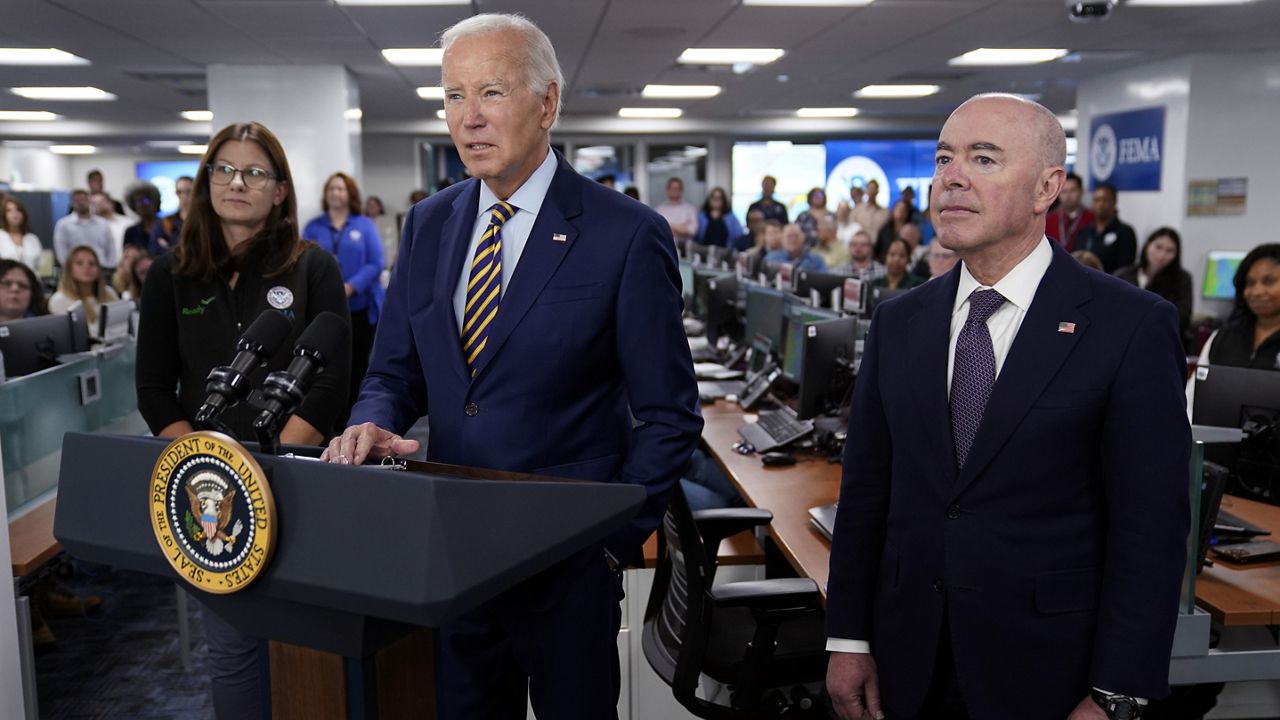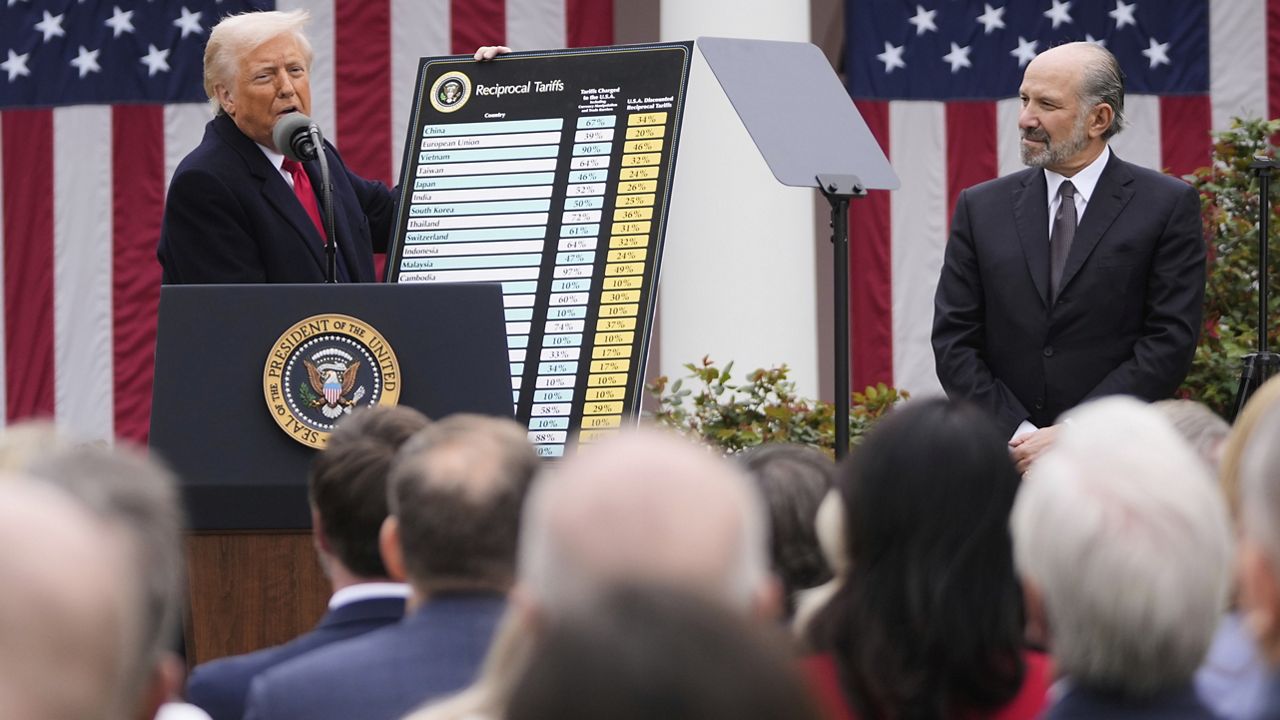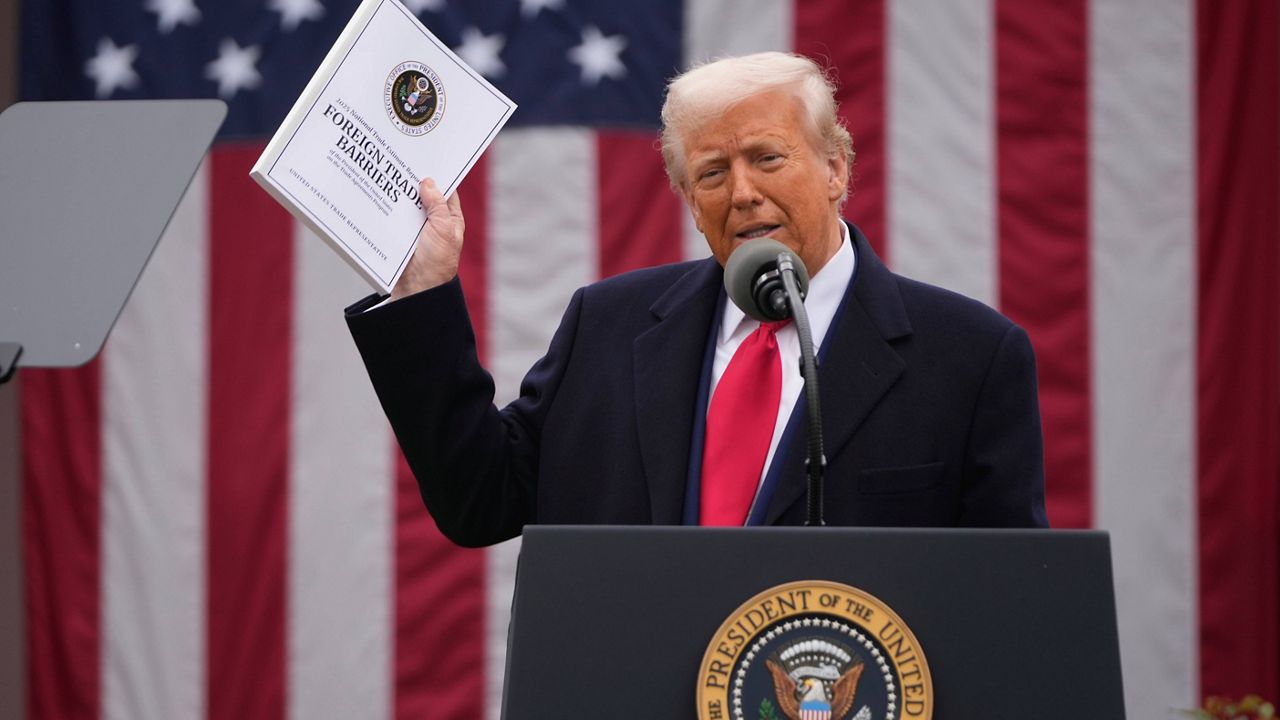In the wake of recent major disasters, the Biden administration on Friday upped the amount of money it is asking Congress to approve to replenish FEMA’s disaster relief fund, adding another layer to the uncertainty around funding for the key emergency response agency.
“Given the intensity of disaster activity around the nation – including fires on Maui, in Louisiana, and across the country, massive flooding in Vermont, and now a major hurricane that hit Florida and the Southeast – the Administration is seeking an additional $4 billion for FEMA’s Disaster Relief Fund,” an Office of Management and Budget spokesperson said in a statement.
The request for an additional $4 billion dollars is on top of the $12 billion the Biden administration called for earlier this month – bringing the total to $16 billion the president wants added to the fund. It follows a string of disasters including the wildfires on Maui – the deadliest in the U.S. in more than a century – and Hurricane Idalia in Florida and other southeastern states.
On top of that, FEMA Administrator Deanne Criswell noted this week that the agency is faced with “an unprecedented number of disaster requests from governors.”
“The President has been clear that we’re going to stand with communities across the Nation as they recover from disasters for as long as it takes, and the Administration is committed to working with Congress to ensure funding for the DRF is sufficient for recovery needs,” the OMB spokesperson went on to say in the statement. “We urge Congress to take swift action on supplemental appropriations.”
Criswell said FEMA’s disaster relief fund has a current balance of $3.4 billion and is approaching depletion – leading the agency to move to “Immediate Needs Funding.” She previously said on Aug. 20 that FEMA estimated the fund would run dry in mid-September.
The new immediate needs funding structure means the agency is prioritizing using available money for Hurricane Idalia, the Maui wildfires and “any other extreme weather events that may come our way,” Criswell said – putting off recovery and rebuilding projects from past disasters.
But approving the new funding may not be straightforward.
The $12 billion the Biden administration originally asked for was part of a larger $40 billion request that included funding for the Southern border and Ukraine amid Russia’s invasion.
Some in the GOP, which controls the House, have pushed back on additional financial aid for the war-torn country, arguing the U.S. should be using the cash for domestic issues.
A few Republican lawmakers have pushed back on tying the FEMA funding to Ukraine aid. But Biden last week said there was no chance he would consider splitting two requests.
On Thursday, during a surprise visit to FEMA’s headquarters in Washington, the president urged Congress to act swiftly, claiming some in the Senate believe the funding is “somehow, I don't know, not needed or – I'm not even sure what their thinking is.”
“We need this disaster relief request met. We need to do it in September – we can't wait,” he went on to say.
Congress is already facing uncertainty around an agreement to keep the government funded past the end of the current fiscal year on Sept. 30 and avoid a shutdown.
The Biden administration formally asked Congress on Thursday to pass a short-term government funding measure that includes their requests while lawmakers work out a budget for the year.
“As part of our responsibility to prudently plan for a short-term CR, OMB is providing Congress with technical assistance needed to avoid severe disruptions to government services in the first quarter of the fiscal year,” an OMB spokesperson said in a statement to Spectrum News. “We urge Congress to include these anomalies along with the critical emergency supplemental needs the Administration transmitted earlier this month in any forthcoming CR, as they have done on a bipartisan basis many times in the past.”
Biden is set to travel to Florida on Saturday in the aftermath of Hurricane Idalia.








